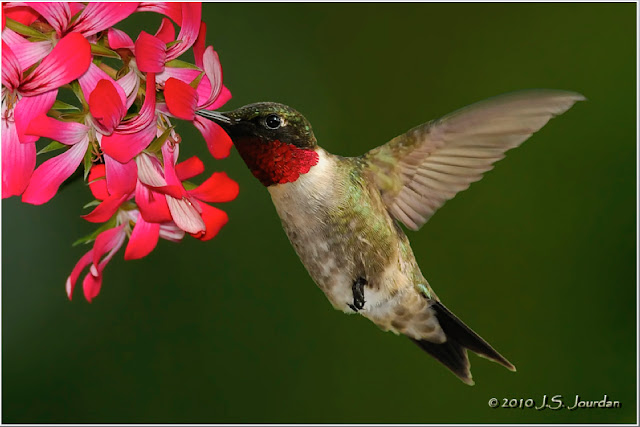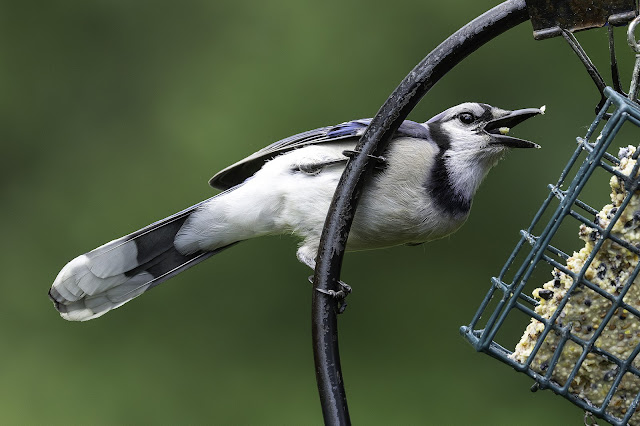Finally, some rain! - 28 Jul 2012
I saw Patrick Jakel out on the North Causeway just east of the dike separating Long Pond and Bloody Run Units, but decided to head south on the dike to check out the Lautenschlager Unit. The DNR has closed the Mouillee Creek entrance while they develop shorebird habitat, so I was curious to see what was going on. I rode along the dike at the south end of the Nelson Unit, and around the west side of the Lautenschlager Unit. The dike connects the Middle Causeway right at Mouillee Creek entrance. A Willow Flycatcher, Gray Catbird, and Field Sparrow were the only birds encountered in this area.
I found a few swaths being cut into the Lautenschlager Unit and some heavy equipment, but no evidence of construction along the Middle Causeway. I rode out to the pump house and found the Walpatich Unit devoid of water. The American Lotus were in full bloom in Mouillee Creek at this location.
Great Egrets and Great Blue Herons greeted me along the north end of the Humphries Unit. I scanned the dozens of birds but found no evidence of White-faced or White Ibis, Snowy or Cattle Egret. Surprisingly there were a number of shorebirds along the south end of the Long Pond Unit. Pectoral Sandpipers, immature Least Sandpipers, Lesser and Greater Yellowlegs, and Solitary Sandpipers were foraging just feet away. Unfortunately it was still heavily overcast, so digiscoping was a disappointment.
I caught up w/ Patrick in the SW corner of the Vermet Unit and learned that the White Ibis had not been seen (yet). I continued on along the Middle Causeway toward the Banana Unit, stopping in the NE corner of the Humphries to scan the fresh-burnt ground for birds. One can finally see out into open water from the Middle Causeway, and it is amazing how much real estate was buried in phragmites! Savannah Sparrows were moving in small flocks of 6 - 10 birds, while juvenile Horned Larks and European Starlings foraged among the burnt stubble. I was surprised to see numbers of Pectoral Sanpipers working the burnt ground, as well.
I arrived at Cell 3 and found Mary Trembley scanning the burnt area of the Humphries Unit. A 'possible' Ruff was seen - dark, chickenlike bird w/ heavy scallops on the back flushed before she could get a good look at it. We spent some time scouring the expanse, but failed to relocate it.
We then rode over to the east shore of Cell 3 and found small flocks of Lesser Yellowlegs, 13-16 Sanderlings, and Semipalmated Sandpipers. A Coyote was running across the middle of the cell, and paused long enough for a quick photo.
I arrived at Cell 3 and found Mary Trembley scanning the burnt area of the Humphries Unit. A 'possible' Ruff was seen - dark, chickenlike bird w/ heavy scallops on the back flushed before she could get a good look at it. We spent some time scouring the expanse, but failed to relocate it.
We flushed a hooded gull, and hoped that it might be a Little or Franklin's or Laughing Gull, but it appeared to be a Bonaparte's Gull.
Flocks of Lesser Yellowlegs, Stilt Sandpipers and Sanderlings flew in feed in the middle of Cell 3, but quickly flew off before I could get any digiscoping. We therefore returned to the NW corner of Cell 3 to look for the Ruff again. While scanning the burn we were joined by Pat and Will Weber. They continued on to the east side of Cell 3 while we continued looking for the Ruff (no luck). A few minutes later we were greeted by Cherise Charron, who came all the way from Ontario to look for the White Ibis.
The three of us then walked back to the Middle Causeway where the ibis had been spotted. We managed to get the scope on the juvenile White Ibis for several minutes before it suddenly flushed and took off for the south end of the Humphries Unit. We then met up w/ Charles Owens, Greg Perez, and Johanna Mae Lentz, all part of the Lenawee Co. Group.
With Charles, Greg and Johanna heading off toward Cell 3 Mary and I headed back toward the North Causeway. We stopped long enough to see some Greater and Lesser Yellowlegs, Short-billed Dowitchers, and Stilt Sandpipers along the west shoreline of the Vermet Unit. I then headed back to the car, while Mary headed back around the Vermet. Will and Patrick were at the parking lot where I learned that they had seen a Whimbrel in the SE corner of the Vermet Unit.
A great morning birding w/ great people!
Pte. Mouillee SGA (permit required Sep 1-Dec 15), Monroe, Michigan, US
Jul 28, 2012 7:00 AM - 9:45 AM
Protocol: Traveling
8.0 mile(s)
Checklist Comments: After having gone weeks without rain a number of thunderstorms rolled through the area yesterday afternoon and evening. I woke this morning to light rain rain and heavy clouds, but forecasts called for clear skies by 7 am.
19 species
Lesser Yellowlegs (Tringa flavipes) 18
Greater Yellowlegs (Tringa melanoleuca) 2
Stilt Sandpiper (Calidris himantopus) 3
Sanderling (Calidris alba) 15
Least Sandpiper (Calidris minutilla) 2
Pectoral Sandpiper (Calidris melanotos) 6
Semipalmated Sandpiper (Calidris pusilla) 12
Bonaparte's Gull (Chroicocephalus philadelphia) 1
Caspian Tern (Hydroprogne caspia) 36
Western Cattle Egret (Bubulcus ibis) 1 Continuing. Flight shots of short, stocky heron w/ stubby yellow bill, orange wash to chest.
Great Egret (Ardea alba) 36
Great Blue Heron (Ardea herodias) 6
White Ibis (Eudocimus albus) 1 Continuing bird first found by Mary Trombley. Middle Causeway. Seen with Pat Jakel, Will Weber, Cherise Charron (Windsor). No pics. Brown back, pale chest and head, pink, long decurved bill, and red eyes. Flew off before pics could be had.
Willow Flycatcher (Empidonax traillii) 1
Horned Lark (Eremophila alpestris) 6
European Starling (Sturnus vulgaris) 8
Gray Catbird (Dumetella carolinensis) 1
Field Sparrow (Spizella pusilla) 1
Savannah Sparrow (Passerculus sandwichensis) 8
View this checklist online at https://ebird.org/checklist/S1
This report was generated automatically by eBird v3 (https://ebird.org/home)
Jul 28, 2012 7:00 AM - 9:45 AM
Protocol: Traveling
8.0 mile(s)
Checklist Comments: After having gone weeks without rain a number of thunderstorms rolled through the area yesterday afternoon and evening. I woke this morning to light rain rain and heavy clouds, but forecasts called for clear skies by 7 am.
19 species
Lesser Yellowlegs (Tringa flavipes) 18
Greater Yellowlegs (Tringa melanoleuca) 2
Stilt Sandpiper (Calidris himantopus) 3
Sanderling (Calidris alba) 15
Least Sandpiper (Calidris minutilla) 2
Pectoral Sandpiper (Calidris melanotos) 6
Semipalmated Sandpiper (Calidris pusilla) 12
Bonaparte's Gull (Chroicocephalus philadelphia) 1
Caspian Tern (Hydroprogne caspia) 36
Western Cattle Egret (Bubulcus ibis) 1 Continuing. Flight shots of short, stocky heron w/ stubby yellow bill, orange wash to chest.
Great Egret (Ardea alba) 36
Great Blue Heron (Ardea herodias) 6
White Ibis (Eudocimus albus) 1 Continuing bird first found by Mary Trombley. Middle Causeway. Seen with Pat Jakel, Will Weber, Cherise Charron (Windsor). No pics. Brown back, pale chest and head, pink, long decurved bill, and red eyes. Flew off before pics could be had.
Willow Flycatcher (Empidonax traillii) 1
Horned Lark (Eremophila alpestris) 6
European Starling (Sturnus vulgaris) 8
Gray Catbird (Dumetella carolinensis) 1
Field Sparrow (Spizella pusilla) 1
Savannah Sparrow (Passerculus sandwichensis) 8
View this checklist online at https://ebird.org/checklist/S1
This report was generated automatically by eBird v3 (https://ebird.org/home)






















Comments
Post a Comment
Please leave a comment. I will try to respond ASAP.